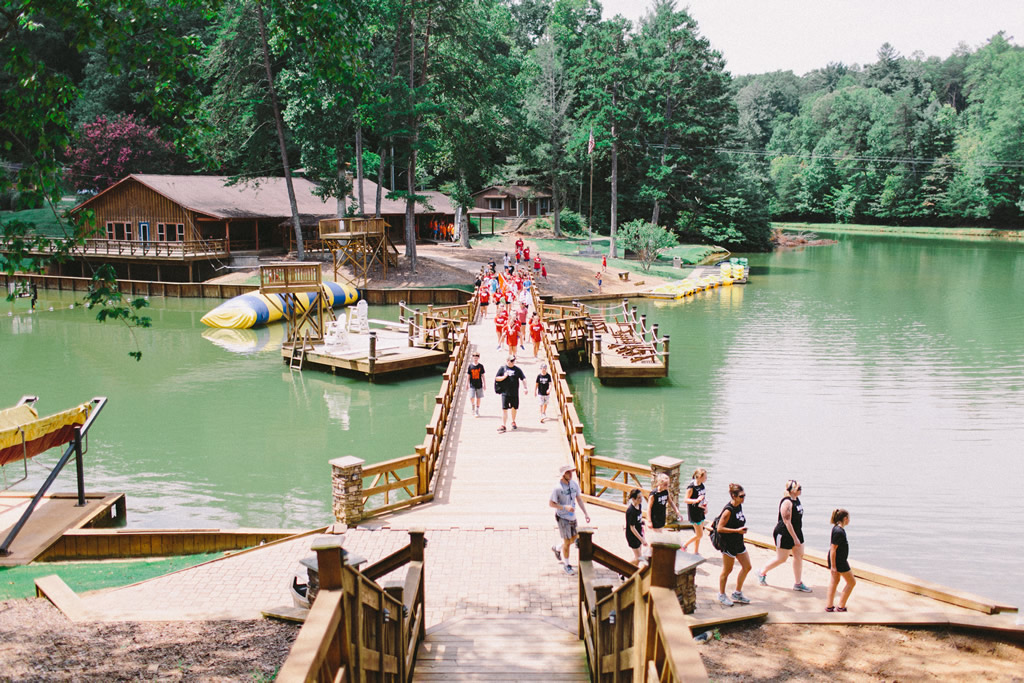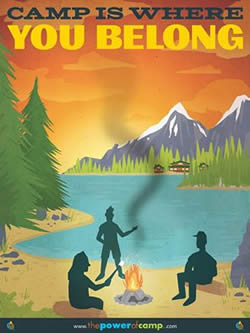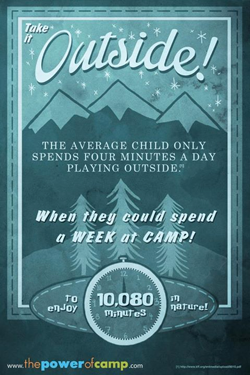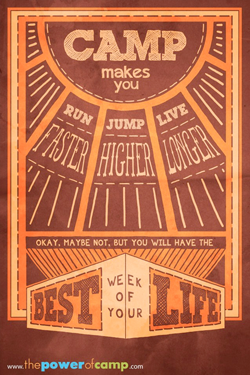It’s a week of fun. It’s a chance to make new friends. It’s an opportunity to leave changed.
“Camp acts as a catalyst for life change in our ministry,” says Britt Kitchen, middle school creative director at North Point Ministries. “If you asked our volunteers or our local camp staff, they feel [the impact on the students is] very tangible in the weeks following the event—the change in their attitude, their engagement on Sunday mornings, their willingness to share in group,” Kitchen says. “We are seeing spikes in students interested in being baptized or the number of students wanting to serve in our preschool or children’s environments.”
But the changes don’t come without time invested. The labor that takes place before the event consists of writing content and programming. Yet Kitchen, who has spent the last 15 years behind-the-scenes of camps and retreats, says there is a lot of work that happens after the event.
The relationships fostered at camp create a bond between small group leaders and students. Campers become comfortable sharing, and the legwork takes place when the students return home.
“A lot of what we do coming out of camp is the long-term care aspect,” Kitchen says. “You help the student reengage in their everyday life.” As a youth pastor, Kitchen identifies the importance of helping students live out their faith day to day after camp. He says helping students process decisions they may have made for Christ and helping them learn what it means to be a Christian is the real work once the event is over.
While some churches may be quick to cut camp from the budget, Kitchen sees great value in breaking away from everyday routines and taking students to a new location.
“Camps are a big part of what we do as part of our strategy,” he says. “We think it’s essential for students to find a faith of their own. We’ll continue to put the resources behind camp.”
Camp is not just a place. Kitchen says it’s an environment where students can step outside of their daily habits, slow down and consider the bigger things in life. One opportunity that camp provides is the time to talk about a topic for more than the weekly small group window. He says, “At camp, we know we can unpack larger subjects.”
Students get to dig deeper in discussion and ask questions that can lead to a broader and more meaningful walk of faith. “They become very significant moments in the cycle of our ministry as we lead students into a growing relationship with Jesus Christ,” Kitchen says.
In the end, that’s what it’s all about. “The power of camp is a child or student having the freedom to process what Jesus is doing in their lives.”
Photo courtesy of Sterling Graves @stergraves
















 INSTAGRAM
INSTAGRAM FACEBOOK
FACEBOOK TWITTER
TWITTER YOUTUBE
YOUTUBE